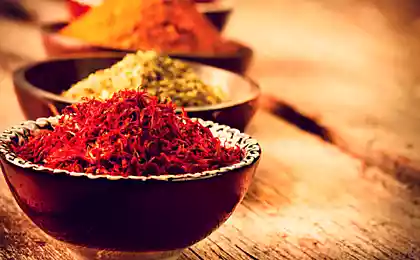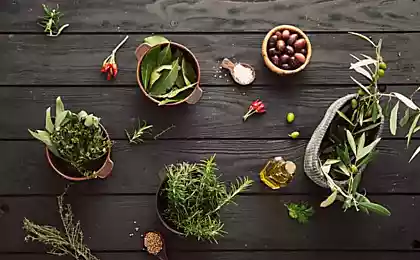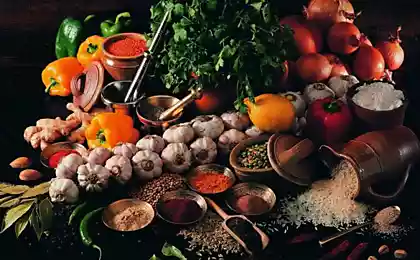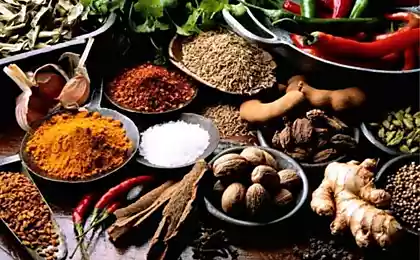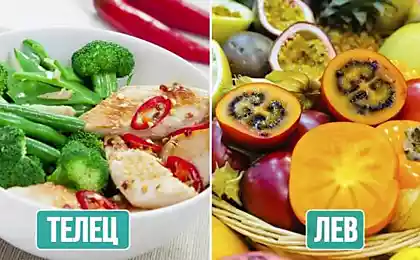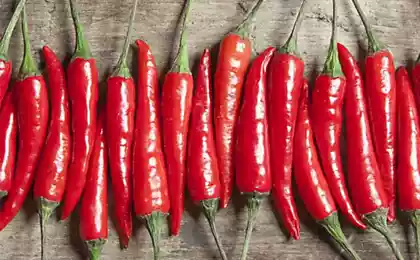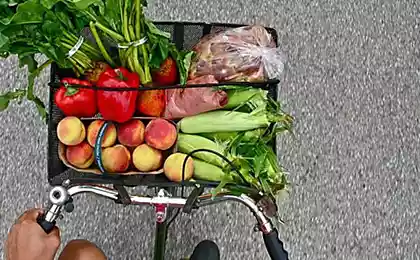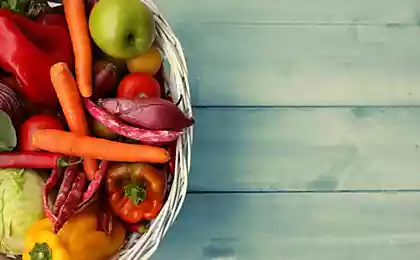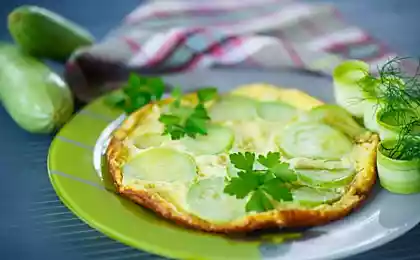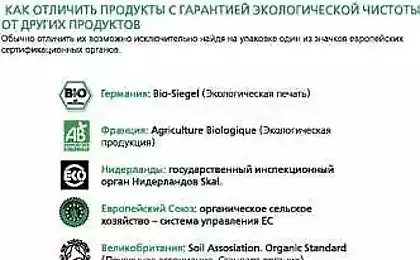232
With which spices do not need to fight
It is difficult to imagine our kitchen without spices and spices. They open up great opportunities for culinary experiments, giving ready-made dishes a special, unique aroma and taste.
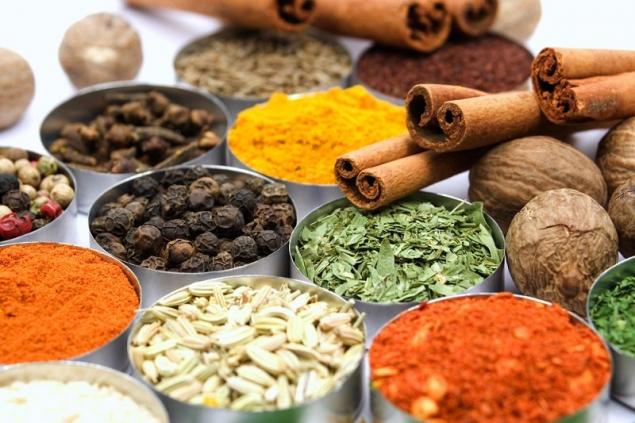
DepositPhotos
But life is arranged in such a way that not everything delicious is useful. The famous medieval alchemist and physician Paracelsus said: “Everything is poison, and everything is medicine, both determine the dose.”
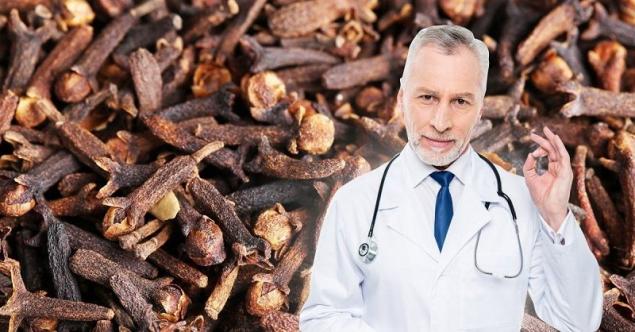
DepositPhotos
Scientists have named the most seasoningWhich is in every kitchen. In order not to harm your health, always carefully check their dosage, then your delicious dishes will also be useful.
Condiments and spices List of harmful taste additives
If we are talking about seasonings, it would be good to understand the confusion that exists in the use of the words “seasoning”, “spice”, “spice”. Often these concepts are considered identical and interchangeable.
Confusion of definitions can be seen even in dictionaries. Thus, the “Great Encyclopedic Dictionary” states that spices are the same as spices, and the “Dictionary of Foreign Words” considers spices spicy roots, spices and medicinal herbs.
In fact, spices are mineral or synthetic substances that enhance or alter the taste of food. These include: salt, sugar, sodium glutamate, vinegar and others.
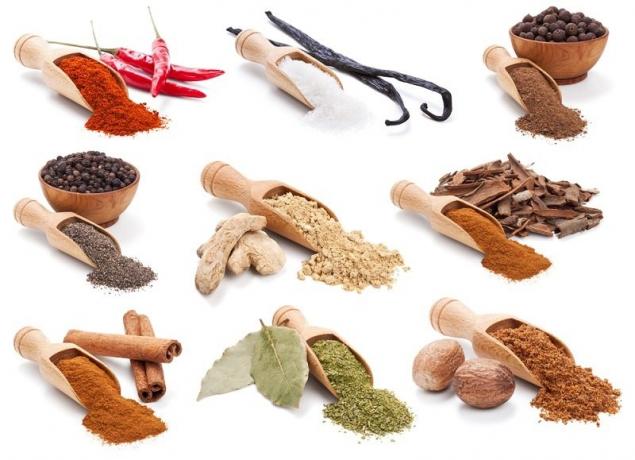
DepositPhotos Spices also refer to products of exclusively plant origin. These are crushed leaves, roots, fruits, stems of plants. Many people identify spices with seasonings, but this is not true.
Condiments are a broader concept, it includes spices, spices, and multicomponent cooking mixtures, which can also be used as flavoring additives to certain dishes and products.
Spices, unlike seasonings, are not used in significant quantities. They can not serve as independent dishes, such as tomato paste or Bulgarian pepper, which can be eaten with bread.
Some spices do not go together at all. For example, basil is better not to mix with other spices, except for garlic, and cumin is combined only with anise, fennel and pepper. What spices and what fit, you can learn in our encyclopedia of spices.
Spices improve mental activity, relieve stress, negative emotions and depression. You don't? Check it out! We have prepared for you a variety of recipes that will help you overcome all your adversity.

DepositPhotos
But life is arranged in such a way that not everything delicious is useful. The famous medieval alchemist and physician Paracelsus said: “Everything is poison, and everything is medicine, both determine the dose.”

DepositPhotos
Scientists have named the most seasoningWhich is in every kitchen. In order not to harm your health, always carefully check their dosage, then your delicious dishes will also be useful.
Condiments and spices List of harmful taste additives
- salt
At the head of the list of harmful taste additives, doctors put salt. Sodium chloride, as confirmed by the results of numerous studies, can provoke kidney disease and narrowing of blood vessels. To reduce the toxicity of excess salt that enters the body, the kidneys have to work with an oversaturated solution. You can reduce the concentration of the solution by consuming additional portions of liquid. And this, doctors warn, leads to increased blood pressure and increases the risk of heart attacks and strokes.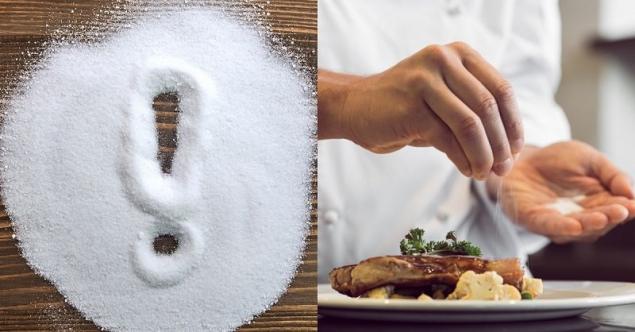
DepositPhotos - sugar
Excessive sugar consumption leads to dental problems, obesity, diabetes and heart disease. The peculiar insidiousness of sugar is that it is hidden in many foods. Take the label of sausages and read: pork, beef, eggs, salt, milk powder, sugar ... Stop. Sugar? The same can be found on the labels of yogurt, sauces, a variety of canned food and even herring.
We eat all of these foods every day and are not aware that we are exceeding a safe intake of sugar.
DepositPhotos - mayonnaise
In addition to salt and sugar, mayonnaise necessarily includes egg yolks, which do not undergo primary pasteurization, and therefore expose the consumer to the risk of getting salmonellosis. In addition, one tablespoon of mayonnaise contains about 15% of the daily norm of fat.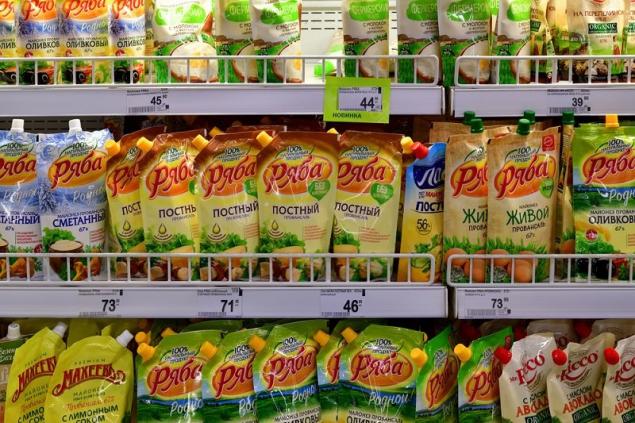
DepositPhotos - soy sauce
One spoonful of sauce contains about 880 mg of salt (just under half the daily value). In addition, soy sauce is made from fermented soybean paste, transferring up to 2% of alcohol to it, effectively making it a weak liquor.
DepositPhotos - Cinnamon and nutmeg
They are recommended to put in baking and desserts. But both of these spices with an overdose become dangerous, their abuse can lead to seizures and even convulsions.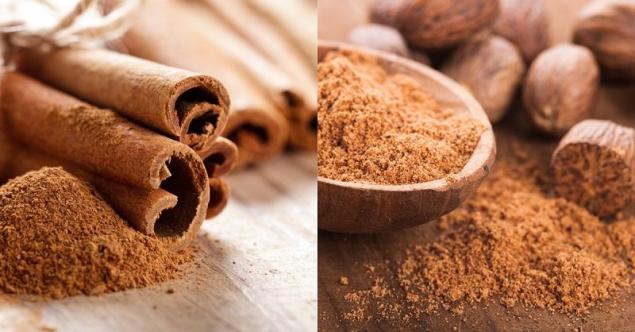
DepositPhotos - rosemary
Perhaps many have heard that this spice has rejuvenating properties. Rosemary should not be consumed during pregnancy. Also, rosemary has a diuretic effect and gives a serious load on the kidneys. You should not use it and hypertensive, as it increases blood pressure.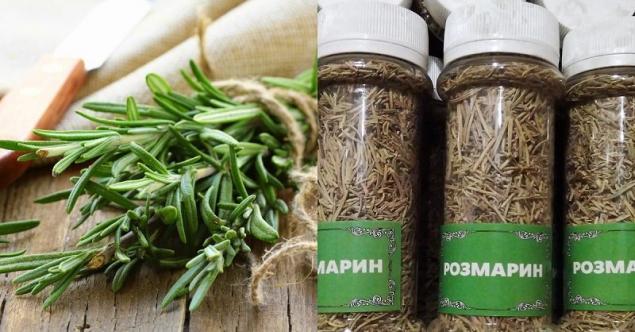
DepositPhotos - Carnation
It is often added to meat and fish dishes, in baking. But few people know that cloves cause severe drowsiness and are a sedative.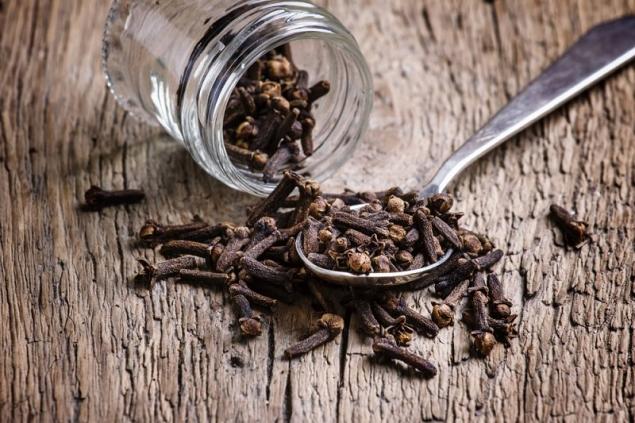
DepositPhotos - sage
In Latin, the name sage even sounds like Salvia (health). However, sage-oil contains a substance monoterpine (thujone), which is an active toxin. An overdose of sage can lead to tachycardia, seizures, or cause hallucinations.
DepositPhotos
If we are talking about seasonings, it would be good to understand the confusion that exists in the use of the words “seasoning”, “spice”, “spice”. Often these concepts are considered identical and interchangeable.
Confusion of definitions can be seen even in dictionaries. Thus, the “Great Encyclopedic Dictionary” states that spices are the same as spices, and the “Dictionary of Foreign Words” considers spices spicy roots, spices and medicinal herbs.
In fact, spices are mineral or synthetic substances that enhance or alter the taste of food. These include: salt, sugar, sodium glutamate, vinegar and others.

DepositPhotos Spices also refer to products of exclusively plant origin. These are crushed leaves, roots, fruits, stems of plants. Many people identify spices with seasonings, but this is not true.
Condiments are a broader concept, it includes spices, spices, and multicomponent cooking mixtures, which can also be used as flavoring additives to certain dishes and products.
Spices, unlike seasonings, are not used in significant quantities. They can not serve as independent dishes, such as tomato paste or Bulgarian pepper, which can be eaten with bread.
Some spices do not go together at all. For example, basil is better not to mix with other spices, except for garlic, and cumin is combined only with anise, fennel and pepper. What spices and what fit, you can learn in our encyclopedia of spices.
Spices improve mental activity, relieve stress, negative emotions and depression. You don't? Check it out! We have prepared for you a variety of recipes that will help you overcome all your adversity.









